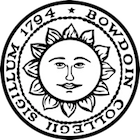 |
CSCI 1101 Spring 2016 Instructors: Eric Chown, Sean Barker, Clare Bates Congdon |
 |
 |
CSCI 1101 Spring 2016 Instructors: Eric Chown, Sean Barker, Clare Bates Congdon |
 |
Plagiarism, cheating, and falsification of information are violations of academic integrity that will not be tolerated. Please check the Bowdoin Academic Honor Code for official definitions of these practices. This document explains specific guidelines for CSCI 1101.
No collaboration whatsoever is permitted on exams. For individual projects and assignments, you are encouraged to discuss ideas and approaches with other class members, but this should not involve any written medium, including (but not limited to) computers, chalk boards, paper, and stone tablets. However, drawing pictures is acceptable. At no time should a student read code or other course work written by another student unless specified in the assignment. Similarly, you should not share your code or other homework with others or allow it to be shared. This includes sharing your work with future students after you have completed the course yourself. Providing help beyond what is allowed is as much of an infraction as receiving help.
For group projects and assignments, the rules are similar, but within the group you can of course share all information. You may have discussions with other groups following the rules above for individual projects, but you may not share written or electronic work with other groups.
Use of the internet (e.g., Google) for reference purposes is allowed on lab assignments and other homework, such as looking up the use of a particular library function. Blindly copying sections of code found online, however, is not allowed, and you should never submit code that you do not understand or would not be able to clearly explain.
External resources: It is permissible to use software and materials available from other sources (understanding that you get no credit for using the work of others on those parts of your projects) as long as: 1) You acknowledge explicitly which aspects of your assignment were taken from other sources and what those sources are; 2) The materials are freely and legally available; and 3) The material was not created by a student at Bowdoin as part of this course this year or in prior years. To be absolutely clear, if you turn in someone else's work, you will not receive any credit for it, but if it is properly acknowledged, at least it will not at be considered a breach of this policy.
Crediting sources: When you use other sources to complete your work, you must credit the source of the ideas. This includes crediting other people (e.g., your classmates or CS tutors) or a web site. You do not need to credit the book, in-class discussions, or your professor. Anyone (or anything) else who contributed to the completion of your assignment should be credited:
Note that by implication, you should learn the names of the people you work with. Not knowing someone's name is not an excuse for not giving them credit.
In the interest of fairness to all students, violations of this policy are grounds to initiate an action that would come before the Judicial Board. If you have any questions about this policy, please do not hesitate to ask for clarification.